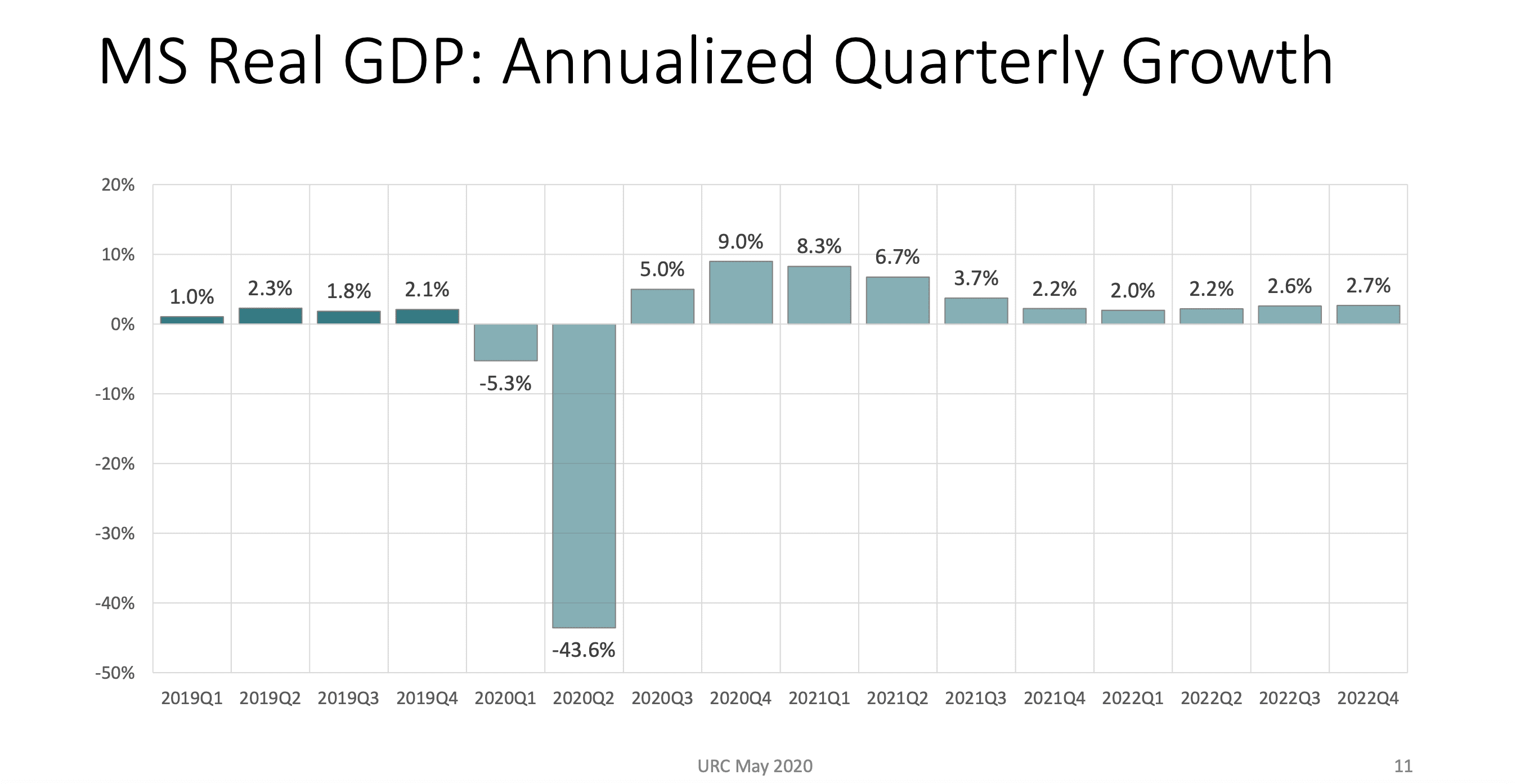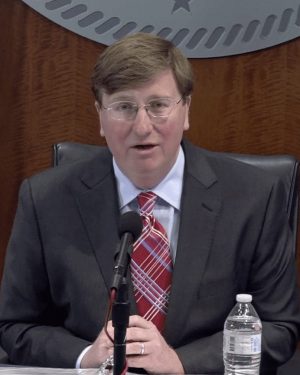
Tuesday, the House and Senate reconvened for more work in the 2020 Legislative session.
Senators sat for a hearing with State Economist Darrin Webb and Commissioner of Revenue Herb Frierson who both addressed the current financial impact COVID-19 is having on the state.
“I think this will be the most difficult choice for the State of Mississippi and their economics in the last 100 years that I’ve ever read about,” said Lt. Governor Delbert Hosemann in regard to setting the state budget for next year amidst an unprecedented economic year.
Webb told Senators no matter which way you look at it, as a general rule recession is expected.
“This is totally new, something we have never experienced before,” said Webb.

Prior to the COVID-19 pandemic the state of Mississippi’s economy as a whole was doing quite well. However, things changed sharply with required shutdowns the coronavirus brought with it.
Webb said reports show that consumer and business confidence have plummeted, but those numbers weren’t as low as the 2008 Great Recession. The Great Recession showed a gradual decline in the economy. This year’s fell much deeper, much faster and has been significantly shorter. However, Webb said they do anticipate it to take just as long to get out of it.
Projections currently indicate that the state might not show recovery from this economic impact until at least 2023. FY 2020 estimates represent a loss of $864.4 million below the November estimate and FY 2021 estimates show a decline of $367.1 million under estimates. Those reflect a shift of roughly $436 million from FY2020 to FY2021 due to late tax filing dates.
“It will affect supply chains and a lot of what we have lost will never be regained. There’s a loss particularly in the service sector that will never be made up,” said Webb.
One thing that has held some of the economy together has been the current stimulus program which gave people within a certain income bracket up to $1,200 along with a $600 boost in unemployment benefits from the federal government.
While the state was also experiencing some of the lowest unemployment numbers in its history, Webb said their predictions show that pre-COVID levels will not be reached again until 2022.
Webb said it is possible that unemployment levels will reach 20% across the state.
“I’m hopeful that is wrong,” said Hosemann who added that he has been in conversation with several small businesses that have begun reopening. “I’m equally concerned about August, September and October of this year.
Hosemann said he worries that the rest of the year could be negatively impacted and that with the numbers they heard Tuesday about the end of the fiscal year estimates, he is concerned about the first quarter of the FY2021 year and how it will be impacted.
Budgets from this year have yet to be set as well, which is later than normal for legislators. With final numbers still up in the air Hosemann said that he and the Speaker sent a joint letter in April to agencies alerting them that cuts were likely to be required. Agencies were not required to provide any documents on how those cuts will be made per department.
Hosemann said he hopes if at all possible, not to use the Rainy Day fund this year. There is a chance that the state could use the late tax filing dollars for FY 2020 and not FY 2021. Hosemann said he has not reached a decision on what direction to go at this time but anticipates that they will come to a conclusion in the next few weeks. He added that it will depend on the final sales tax and revenue numbers that have yet to come in.
“If it’s possible for us to limp into the next year with minor utilization of the Rainy Day Fund up until June 30, that would be my preference,” said Hosemann.
He added that if that money was taken into the current fiscal year there would be a $438 million loss this year and face a $803 million loss next year.
You can view Webb’s full powerpoint presentation HERE:
Economic Outlook Presentation to Senate_05!26!2020 by yallpolitics on Scribd











